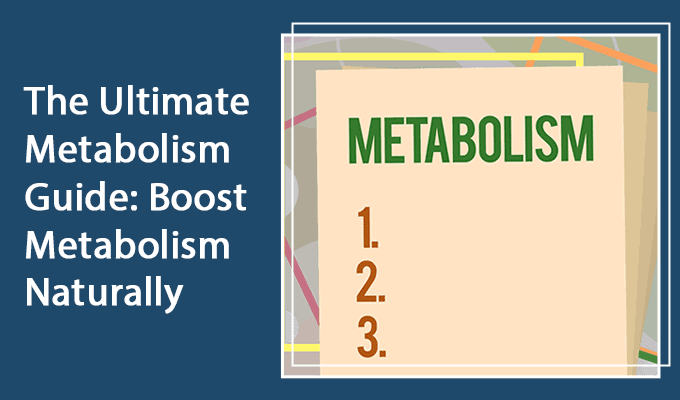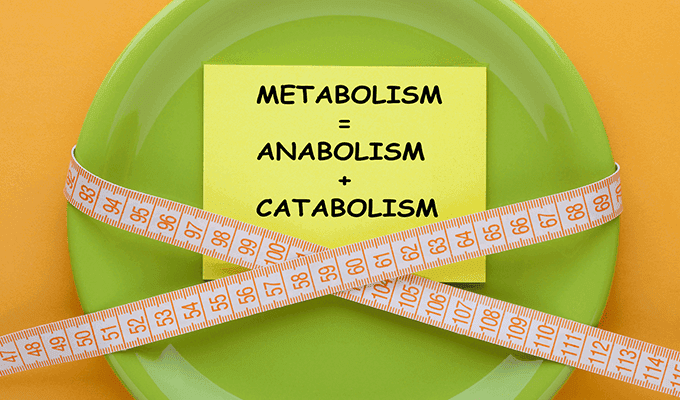The Ultimate Metabolism Guide: Boost Metabolism Naturally

The human body requires a multitude of intricate processes to function effectively. From the beating of our hearts to the digestion of food, our bodies are constantly working to keep us alive and healthy. Metabolism is one such process that provides your body with the energy required to function optimally.
When your metabolism is functioning properly, it can help you maintain a healthy weight by burning calories naturally. A healthy metabolism also helps regulate blood sugar levels, support a healthy immune system, and remove toxins from your body. That’s why many experts recommend that you follow healthy habits for metabolism, which include eating a balanced diet.
Hire a personal fitness trainer today
Take control of your health and fitness journey with a personal trainer.
In this guide, we’ll help you understand metabolism in depth, diabusing common myths, sharing factors that can affect your metabolism, and effective ways to increase your metabolism naturally. Let’s start with understanding the types of metabolism.
Contents
A] Types Of Metabolism

- Catabolism: The breakdown of macronutrients like carbohydrates, proteins and fats into absorbable simple forms and storing them for the repair of the body tissues is known as catabolism. Excess catabolism leads to weight loss.
- Anabolism: Anabolism is when the body uses simple absorbable macronutrients to build the body or repair the body. The additional macronutrients get stored in the form of fats in the body that can be used when there is no external supply of energy. Excess anabolism leads to weight gain.
B] Common Myths About Metabolism
Myth 1: Metabolism Is Solely Determined By Genetics
Yes, genes are responsible for the metabolic function of the body, but metabolism is also dependent on various factors like body composition, food composition, body activity, weather, region, health status and comorbidities. Metabolism can decrease with age, and men tend to have high metabolism compared to women.
Myth 2: Starvation Mode Slows Down Metabolism
The truth is that metabolism does slow down when the body is in a state of starvation. However, this happens only if the body has been without food for an extended period of time. Also, if you try to slow down your metabolism by fasting and reducing calorie intake for a short period, it can actually boost metabolism naturally. So, instead of worrying about this myth, of slowing down your metabolism, you should consider the calorie-deficient approach for weight loss.
Myth 3: Metabolism Slows Down With Age
As you age, your metabolic rate decreases by 10% every decade. With age, the muscle mass starts declining, which reduces the metabolism. However, this happens mostly after a person has reached the age of 60. Age is just one of the factors that plays a role in your metabolism rate.
Now that we have busted some of the common metabolism myths, let’s take a look at the factors that actually affect your metabolism.
C] 5 Factors That Affect Metabolism
-
- Age: Metabolism tends to be at its peak during its infancy, providing the energy required for growth. However, as one reaches adulthood, the body’s energy reservoir is used toward issues such as the maintenance and repair of the body tissues. So, there is a natural decline in lean muscle mass, which leads to a reduction in metabolism.
-
- Body Size: People with bigger bodies have higher lean muscle mass, leading to higher metabolic rates compared to people with smaller bodies. This happens because people with bigger bodies tend to have larger organs, more surface area, and more fluid in their bodies. And in order to keep up with optimal functioning, the body needs to have higher metabolism for people with bigger bodies.
-
- Change in Diet:
 Were you aware that eating foods that require more energy for digestion can help increase metabolism and burn more calories? In contrast, eating refined and junk food can make your body feel sluggish, slowing down your metabolism. So, you should consider creating a diet plan for metabolism improvement,a diet that incorporates metabolism-boosting foods.
Were you aware that eating foods that require more energy for digestion can help increase metabolism and burn more calories? In contrast, eating refined and junk food can make your body feel sluggish, slowing down your metabolism. So, you should consider creating a diet plan for metabolism improvement,a diet that incorporates metabolism-boosting foods.
- Change in Diet:
-
- Changes in Hormones: Hormones play a role in the body’s metabolic function. The Thyroid hormone responsible for managing bodily processes, particularly, affects the metabolism rates. A decrease in thyroid hormone can reduce your metabolic rate, leading to lethargy and weight gain. Alternatively, a high level of thyroid hormone can boost metabolic rate, but this can also reduce your muscle mass which is an unhealthy way to lose weight.
- Lack of Sleep: A night of good quality sleep is important to balance your hormones. If you do not get sound sleep, your body releases cortisol, which increases your stress and the body will sideline other processes and focus on the stress. Good sleep produces melatonin which is required for normal hormonal functions.
D] 6 Effective Ways To Increase Your Metabolism
1. Build Muscles With Regular Workouts

With age, muscles start to decline, reducing your metabolism. But if you work out regularly, you can build up lean muscle mass and boost metabolism naturally. This works as your lean muscle mass is directly proportional to your metabolic rate.
The key to balancing metabolism and weight loss is regularly working out with the goal of building muscles. Resistance training or strength training helps to increase your muscle mass. Try to include squats and lunges to build muscles in the lower limbs and abs. Perform bench presses, deadlifts, overhead presses, pull-ups and rows to increase muscle mass in arms, chest and abs.
2. Add Cardio Exercise To Your Daily Workout Routine

As we have established, you can speed up metabolism by exercising regularly. While resistance training builds muscles, cardio workouts help to burn the extra fats and flab. During the initial minutes of the cardio exercise, the body uses the glucose circulating in the body for energy. As the workout continues, the body may start breaking down muscle tissues for energy. However, after approximately 20 minutes of sustained activity, the body begins to rely on the stored fats as the source of energy. This is how adding cardio exercise such as walking, jogging, swimming, running or cycling to your regular workout routine can help you boost your metabolism naturally.
3. Add Protein To Your Diet
Metabolism booster foods with proteins require more energy for digestion. So when you consume protein, you burn more calories leading to an increase in your metabolism, causing weight loss. Protein consumption not only helps increase your metabolism but also makes your muscles strong, toned and flexible. So, include foods like good quality proteins like low-fat dairy products, dals, pulses, sprouts, lean meat, poultry and eggs in your diet. If the diet lacks good-quality protein you can also supplement it with metabolism-boosting supplements like whey, creatinine or vegetable protein isolates.
4. Drink Water At Regular Intervals

Drinking water at regular intervals increases your metabolism. Lack of water can lead to muscle breakdown and loss of muscle mass. Adequate water intake ensures the muscle mass remains intact which keeps your metabolism running smoothly.
Water is also an integral part of the bodily process, hormone function and circulation. You should consume a minimum of 2–2.5 litres of water daily. To increase your water intake you can also try fresh fruit-infused water, buttermilk, clear soups or fruit and vegetable juices. You can also drink metabolism-boosting drinks like sports drinks, or protein shakes, however, you should consult a fitness expertbefore making this decision.
5. Get Enough Sleep

It is necessary for adults to get 7- 8 hours of uninterrupted sleep. If you delay your sleep timings, you are bound to feel hungry and crave a late-night snack. Eating late at night can decrease your metabolism and make you prone to insulin resistance, obesity and cardiac issues.
Sleep disturbances tend to make you more hungry, causing you to eat more and put on weight. You can avoid these issues, by taking measures such as avoiding screens 2 hours before sleeping, keeping the room temperature lower while you sleep, and avoiding caffeine and alcohol later in the evening. Taking these measures to get enough sleep can help boost your metabolism naturally.
6. Reduce Stress
Stress can negatively affect your metabolism, leading to leathery and disrupting bodily function. When the body experiences stress, it releases cortisol, which can affect appetite, causing eating disorders. In order to relieve stress, you can engage in some light workouts, take up some hobbies, meditate, perform breathing exercises and follow a healthy lifestyle.
Conclusion
There are various factors that affect metabolism, including age, genetics, body composition, and lifestyle habits. While some of these factors may be out of your control, there are many healthy habits that can naturally boost your metabolism. These habits include regular physical activity, consumption of nutrient-rich whole foods, staying hydrated, getting enough sleep, and managing stress.
When you incorporate these healthy habits for metabolism in your routine, you can set yourself on a healthy path in life.
Hire a personal fitness trainer today
Take control of your health and fitness journey with a personal trainer.


Leave a Reply